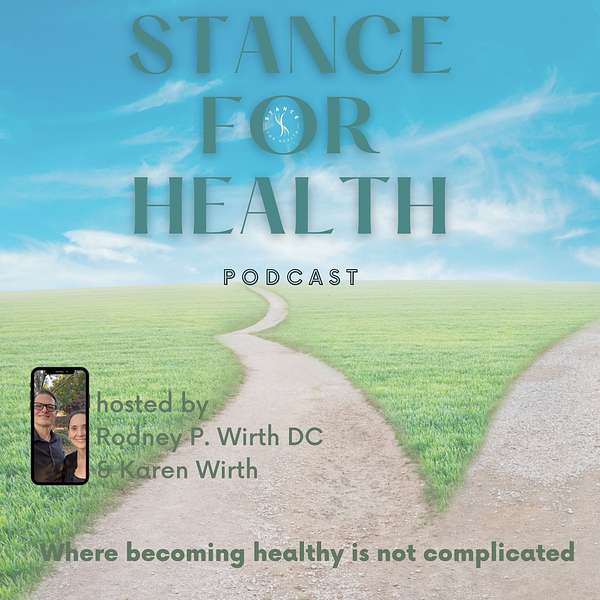
Stance for Health
This podcast is about the tiny changes that you can make consistently to add years and vitality to your life. Dr. Rodney and Karen will inspire you to start today to make healthy choices.
We help those wanting to live a long healthy life - but don't know where to start - gain clarity, confidence and control over preventable diseases in order to increase their health span and get to do what only they can do.
Stance for Health
The Hidden Food Addiction & How to Be Free From It
Are you struggling to give up eating junk food? You might be addicted to a hidden factor that is present in almost all pre-packaged food and most spice blends. In this episode Dr. Rodney and Karen talk about a topic near and dear to their hearts because of the health change they made three years ago to eliminate this hidden factor from what they eat.
That additive is MSG, a flavor enhancer that can be found in almost every pre-packaged food whether considered junk food or a healthy snack. Even items marked as having no MSG will have several other names on the pseudo-ingredient list.
What is it?
MonoSodium Glutamate (MSG) is much more than a seasoning like salt or pepper. In fact, it does not have a taste in and of itself. It makes food taste better, look fresher and smell better. It makes your salad dressing taste better and has even been added to baby food and infant formula. It is added so that people will want to keep on buying the product as can be seen the potato chip ad, “Bet you can’t eat just one…”
What is the history of this food additive?
A Japanese inventor identified a natural flavor in seaweed called “umami.” It did not become popular until World War II when the U S military found out that Japanese rations tasted so much better than their own.
Why is MSG so dangerous?
Dr. Russell Blaylock, a board-certified neurosurgeon wrote a book called Excitotoxins: The Taste that Kills. MSG overexcites the taste cells to the point of damage or death causing brain damage in different degrees.
Regular consumption of MSG can lead to:
- Eye damage
- Headaches
- Depression
- Obesity
- Fatigue
- Disorientation
How did it become so widely used?
People began having a reaction known as “Chinese Restaurant Syndrome” that had lots of side-effects including numbness and heart palpitations. The FDA identifies these as “short-term reactions.” In 1959, The FDA labeled MSG as “Generally Recognized as Safe (GRAS) and it has remained the same ever since. When the public became aware of the dangers they became more aware of reading labels. As a result, the food industry quickly started using many other names for this additive.
The food industry has 13 other names for MSG:
- Autolyzed Yeast
- Glutamate
- Monopotassium Glutamate
- Textured Protein
- Yeast Nutrient
- Calcium Caseinate
- Glutamic Acid
- Monosodium Glutamate
- Yeast Extract
- Gelatin
- Hydrolyzed Protein
- Sodium Caseinate
- Yeast Food
25 Labels that contain MSG or create MSG during processing:
- Flavors and Flavorings
- Seasonings
- Natural Flavors and Flavoring
- Natural Pork Flavor
- Natural Beef Flavor
- Natural Chicken Flavor
- Soy Sauce
- Soy Protein Isolate/Soy Protein
- Boullion
- Stock
- Broth
- Malt Extract
- Malt Flavoring
- Barley Malt
- Anything Enzyme Modified
- Carrageenan
- Maltodextrin
- Pectin
- Enzymes
- Protease
- Corn Starch
- Citric Acid
- Powdered Milk
- Anything Protein Fortified
- Anything Ultra-Pasteurized